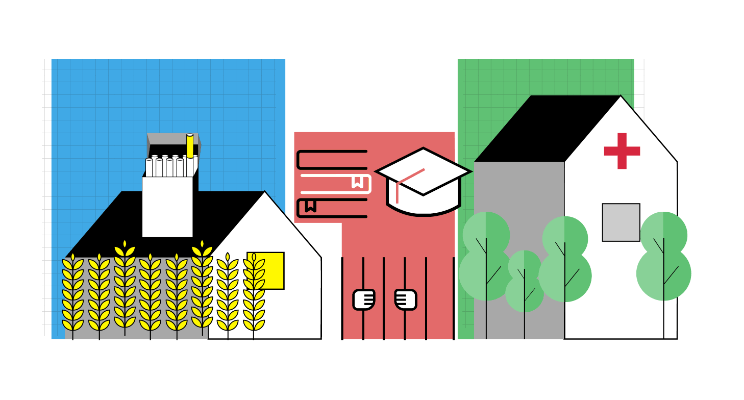
UnitedHealthcare and the American Medical Association (AMA) are teaming up to support using data for social determinants of health (SDOH) to improve and simplify how referrals are made to social services. The collaboration builds off work initiated by UnitedHealthcare to standardize how data is collected, processed and integrated regarding critical social and environmental factors that contribute to patient well-being.
New ICD-10 related to Social Determinants of Health (SDOH)
Today, nearly 80% of what influences a person’s health relates to nonmedical issues, such as food, housing, transportation, and the financial means to pay for medications, utilities, and other services. Yet the healthcare system does not have a consistent, organized way to capture those needs and then incorporate the data into a person’s overall care plan.
To resolve this challenge, UnitedHealthcare and the AMA are supporting the creation of nearly two dozen new ICD-10 codes related to SDOH. By combining traditional medical data with self-reported SDOH data, the codes trigger referrals to social and government services to address people’s unique needs, connecting them directly to local and national resources in their communities.
Data Model to Standardize SDOH-related Information
Typically, physicians and care providers use a system of ICD-10 codes to classify and record all diagnoses, symptoms, and medical treatments and procedures. UnitedHealthcare has developed a data model focused on standardizing the capture and processing of SDOH-related information.
Essential to improving health and wellness are identifying and aggregating critical factors of patient well-being, such as employment, education, food, housing, access to transportation and many other factors. UnitedHealthcare partners with national and local community-based organizations to expand access to critical social services for millions of people. Using its data model, UnitedHealthcare has made more than 700,000 social-service referrals for people enrolled in its Medicare Advantage plans since 2017, providing an Imputed Market Price of more than $250 million.
Collaboration Benefits
The collaboration between UnitedHealthcare and the AMA illustrates a growing recognition of the partnerships that are essential to the success of patient-centric health care. With a consistent set of standardized data, health care organizations can tap into local and national resources to connect people to social and government services.
“The AMA is excited to work with UnitedHealthcare through the continuing efforts of our Integrated Health Model Initiative (IHMI) to foster collaboration around innovative data and technology-driven processes for incorporating social determinants of health into routine medical care,” said Tom Giannulli, Chief Medical Information Officer of AMA’s IHMI. “The collaboration reinforces the importance of social and environmental factors in patient care, and will shape IHMI’s efforts to support clinical decisions with useful and valid data to achieve broad improvements in health and greater health equity.”
